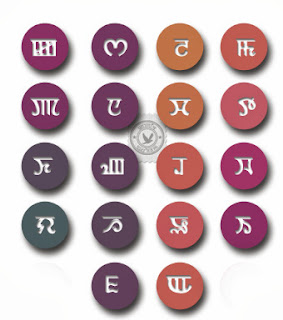With or Without ‘u’: The Politics in Amerikan Spelling and of English on Our Existence
Jumping to conclusions are psychological errors, so the experts tell us. Against the expert recommendation, we are going to perform a psychological-slash-linguistic somersault. We will do it by combining the English language, the politics in American spelling and the existential crisis of a self-proclaimed humanist.
First thing first. I have this habit of writing Amerika or Amerikan with a k. When I wrote a comparative analysis of culture and social mores, I had written the title as ‘Amerikan’ Thinking, Manipuri Living. Again when I translated Allen Ginsberg’s America, I had titled it as ginsberg-gi amerika.
I have no specific reason other than the fact that in my native language, Manipuri/Meiteilon, we have Kok as the first alphabet letter. Albeit it is not as serious as I have with a u in a spelling, or for that matter, without it, particularly when it comes to this division of American and British English. Here’s a reflection on that topic.
HOME IS WHERE THE HATRED IS Profanities, you can hear those colourful expressions in the most unlikely moments. I was putting on my Converse shoes, self-admiring a shade of Americanist image that is reflected from wearing export quality stuffs; no matter if those are imported from Moreh or elsewhere. Getting ready to visit one of your favourite joints in the evening is one thing. It is totally another when your friend, whom you seldom meet—came uninvited and without any ‘hey’ or ‘hi’—charge you for being pretentious because you use a foreign language, read English, for communication. You might want to take out one of your shoes and hurl it at him.
Probably you might want to reconsider about throwing the shoes. Not that it is a pair of trendy, costly footwear but because we know we have a problem.
Our problem is with our existence. It doesn’t mean much but we have been unable to get out of deep shitholes. We have been treading on shaky grounds of history and politics. The crudity is too apparent, regardless of the number of languages we can speak about our primitive coexistence. On more occasions than any other else in the universe, we have to show who we are and vocalise our ethnic identity instinctively, lest we are doomed to disappear from this big bad world.
Incidentally, some of us profess, like we can get rid of our dilemmas with the useless government-made policies like those of the Inner Line Permit, or through constitutionally-mandated provisions of scheduled castes and tribes. Am I joking, am I not?
The bottom line is our ignorance and the lack of interest and research into our own story. Our roots. Our entire existence. English is doing a small part to be a pain in the ass, at least that’s how a few folks presume. We don’t know ourselves but we would tell the English strangers how we indulge in the Englishness of their lives and ours.
Nope, that would be inference-observation confusion, which is another bone-breaking term for jumping to conclusion. In this age of communication and connection, foreign languages, especially English, help us in many ways, and much, much more than the combined force of all the cheap ministers in the region. Such is the power of a language.
With this amount of clarification, I can start, I guess. I would not wait for another bugger to listen to his self-righteousness. I will admit I have lost all my intention to throw the shoes, but these stories are aimed at his brain—if this phrase means anything concrete at all in this language!
THE ENGLISH OF AMERICA In my first office, where I worked, we have clients—most of them from the overseas. One of them was an Englishman. The finicky foreign boss would say the Americans are too lazy that they have taken all the u’s out from the spellings. So, colour is color, parlour is parlor, odour is odor and so on. They have contracted even some of the spellings like programme to program—though the British do use this spelling for computer program.
Then, the boss, despite his arrogance and sense of superiority, vanished into oblivion ten decades ago until the previous paragraph. He has disappeared again. Now, going back into the past appeared a man—Noah Webster, possibly he was one of the first nationalists in terms of the global modern history of nation-states.
Do you hesitate to say all the high-level things were developed from the west? It is secondary now because all the civilisation are in a ceaseless revolution. When the American spelling was taking its root, we were on a different universe. These were the time in my native place, when the kings used to exhibit their power, by the number of their marriages and the number of concubines they can catch and keep in their royal cages. True hunters! (Read I Have 96 Wives — How Many Can You Get?! )
 | ||
| Noah Webster (16 Oct 1758–28 May 1843) on US Postage stamp, issue of 1958 IMG: Wikimedia Commons |
Why is he interesting is clear from his ideal behind the making of a dictionary. The amount of time: he took 28 years to complete a dictionary, says it all. In another sense, he was a revolutionary, who proved that the change of spellings is more political than being lazy. This again countered the whoisthat-Englishman’s concept of slothful American English.There is no motives for patronising here.
THE REST IS HISTORY Before English, the Americans considered several others, including Hebrew and German, to be their first language. History books are no lesser good storytellers than our grannies. It was a time, when after fleeing their home continent, the New Europeans were taking roots in the Brave New World, which later became the United States of America. Their possessiveness reached to such ridiculous height that they started fighting against the non-residents. In history, we can see that in due courses, all the Britishers were kicked out from the host countries.
Again we can read about the thousands of valid reasons for the fight for American independence. The numbers were as many as Columbus had them for his voyage, though he reached the other India on the wrong side of the Pacific.
The point is their longing for a new system of language that would be their own, and not some of those that are spoken in their original European homes. The most noticeable dissent came from the British. Yes, they can afford all kinds of resistance because they can, simple as that. In the approaching couple of decades the sun was not supposed to set in their empire.
 |
| Cover page: A Dictionary of the English Language IMG: Wikimedia Commons |
Webster was even smarter when he published the Compendious Dictionary of the English Language (1806) and later, the most famous An American Dictionary of the English Language (1828). Following the publication, he advocated for copyright laws!
He knew the market, and this was clear from his trips to several corners of America to sell his books. He knew as well that a language can create a unique nation.
The linguistic bigots in the Indian subcontinent should take a cue here. They can start by buying second-hand copies of Merriam-Webster Dictionary from Daryaganj.
That’s how Webster replaced all the s’s from organise, legalise, socialise and other ise’s with z’s and ize’s respectively. He removed all the redundant l’s from travelled and cancelled. All the theatres became theaters, so on and so forth. The most remarkable change was in reducing the number of words, for example, after taking the u’s out from colour and parlour and valour and other -ours. A new America was coming into existence.
‘Such a reform would diminish the number of letters about one sixteenth or eighteenth,’ Webster made a realistic statement in the Reform of Spelling. He added, ‘This would save a page in eighteen; and a saving of an eighteenth in the expense of books, is an advantage that should not be overlooked.’
But the strength lies in his political consciousness. He is remembered for declaring that ‘America must be as independent in literature as she is in politics, as famous for arts as for arms.’
Surely he did not mean, for its own sake, America should fuck up all the oil-producing countries after blaming them for building weapon of mass destruction. These days, the world needs to have a conference on spellings that specifically Washington can understand with ease. Selling democracy is like stealing oil.
WHAT’S LOCAL AND WHAT’S GLOBAL—AND THE CONTRADICTION As a student of communication and regards to my livelihood, I find it essential to know the language. I do believe in the credo: Buy local, think global. This follows I hardly need to lend an ear to what the nationalists would tell us about the tongue. On the other hand, it is more constructive to read the native literature than to damn others. Yes, it is much better than being a moron caught in a nondescript shithole with all the sound and fury signifying nothing.
 |
| The letters in Meiteilon script |
It is a curse to belong to a group of people with the entire universe against them in their evolution. Yet it is a blessing to learn so many things, and grasp the concepts of many more thoughts and beliefs and values and what not. No extra or even lesser letters matter so little in making our lives better, with or without ‘u’, with ‘se’ or ‘ze’.
I would say the medium is not the message. The point is, however, between the lines. It is remarkable considering one of the major problems we are facing is in the lack of transport and communication facilities. Our aspirations and conviction are independent of English or Manipuri. I consider I have made my point here. It will be no jumping to conclusion to state that we have a long way to go with or without ‘u’.
—Concluded.
Further reading
- Noah Webster’s work
An Essay on the Necessity, Advantages, and Practicality of Reforming the Mode of Spelling and of Rendering the Orthography of Words Correspondent to Pronunciation
Noah Webster on the Necessity for an American Language (1789)
An Essay on the Necessity. Advantages, and Practicality of Reforming the Mode of Spelling...
- George Orwell: Politics and the English Language (1946) on Project Guttenberg (you can read it online on this site)








Comments
Post a Comment